All Images: Jeff Engerbretson
Amie Engerbretson is no stranger to ski films. The Tahoe-based professional skier has been starring in Warren Miller and Teton Gravity Research (TGR) flicks for the better part of a decade. More recently, Engerbretson has stepped up her athletic career by diving into the snowmobile world for access to bigger ski lines while simultaneously getting involved with Protect Our Winters (POW). If that sounds hypocritical to you, you’re not the only one.
In this 26-minute film, Engerbretson ventures into the convoluted world of climate advocacy and pulls the curtain the fossil fuel industry has draped over our society and government. “The Hypocrite” is Engerbretson’s daring feat to advocate for imperfect advocacy and what it truly takes to make a positive, systemic change for our planet. We caught up with the POW athlete to talk about the film, where she feels athletes and everyone else can make the biggest impact and how her love of snowmobiling isn’t going anywhere. Keep reading for the full Q&A below.
First off, how are you? How has your season been?
I’m good, the season has been a slow start but I feel like winter just showed up two weeks ago [laughs]. I’m having that end-of-February panic this year more than ever. It’s always an anxious time for me this time of year, but this year, more than usual, because it was such a slow start. BUT it’s finally picked up; I’ve got some good skiing in.
You recently released your latest project “The Hypocrite” online. What was the inspiration for making this film?
Insanity? No [laughs]. I had the idea of making this film floating around in my mind for almost four years before I got the guts to do it. The reality is I started getting super active with POW in 2016. Before then, I’d go to an event or wear a hat, but I was never somebody who saw myself as a climate advocate or a POW athlete. Honestly, a lot of that was feeling like I wasn’t good enough, my life wasn’t good enough, I wasn’t committing to being a foot-powered-only athlete, I just didn’t really see a place for myself. Around 2016, I saw things happening with the leadership of our country that made me really concerned and had this feeling that I couldn’t do anything, I had to try, so I dipped my toes in with POW and in a lot of ways, they threw me in the deep end but with a lot of life preservers. I started learning so much about what was going on in our system, why we think the way we do, why things exist the way they do and also the potential impacts we could have—both as individuals and communities, especially the outdoor community.
While this is all happening, I’m learning and getting involved with advocacy work. I also got to a point in my career where getting a snowmobile was really helpful. I knew I wanted to get into sledding for filming and do the kind of skiing I wanted to do in a way that was easier and cheaper than helicopters—also more fuel efficient, by the way. When I got the snowmobile, I kind of expected not to fit in. I thought I was just going to use it to get my clips and that’s it, but that didn’t happen. I started falling in love with snowmobiling and the snowmobile community. So I had this really big confliction with falling in love with sledding while becoming a climate advocate and thought it was really hypocritical.
I applied for a grant in the spring of 2022 from POW to make a film [about the confliction I was facing], and in the fall of 2022, I found out I got the grant. Then I was like, “F*$#, now I have to make this movie, oh my god.” [laughs] The motivation is to bring people along the information-gathering experience I’ve had over the last six years, learning so much about, for example, who invented the carbon footprint. I didn’t know that that was a marketing scheme paid for by the fossil fuel industry. I didn’t know the way I was thinking, feeling like I wasn’t good enough to speak up for our planet, was a byproduct of millions if not billions of dollars of advertising money. I think “The Hypocrite” is this conversation that so many people feel. There are so many people who care about the environment see the changes and want to be a part of the solution, but they don’t feel like they’re good enough or deserve to be there. Hopefully, the film opens up that conversation and thought process for how we deal with our own hypocrisy and deal with our desire to be a part of the solution.
What was something unexpected that came out of making “The Hypocrite?”
I don’t know if unexpected is the right word, but I was very unsure what people were going to say when I reached out to them about this film—I reached out to TGR, fellow athletes and sponsors. I was really unsure if anybody else was going to be as crazy as I was to call themselves a hypocrite and plaster it on their forehead. I wasn’t sure if anyone else was going to be willing to do that, and I was encouraged and so inspired by how many people there were.
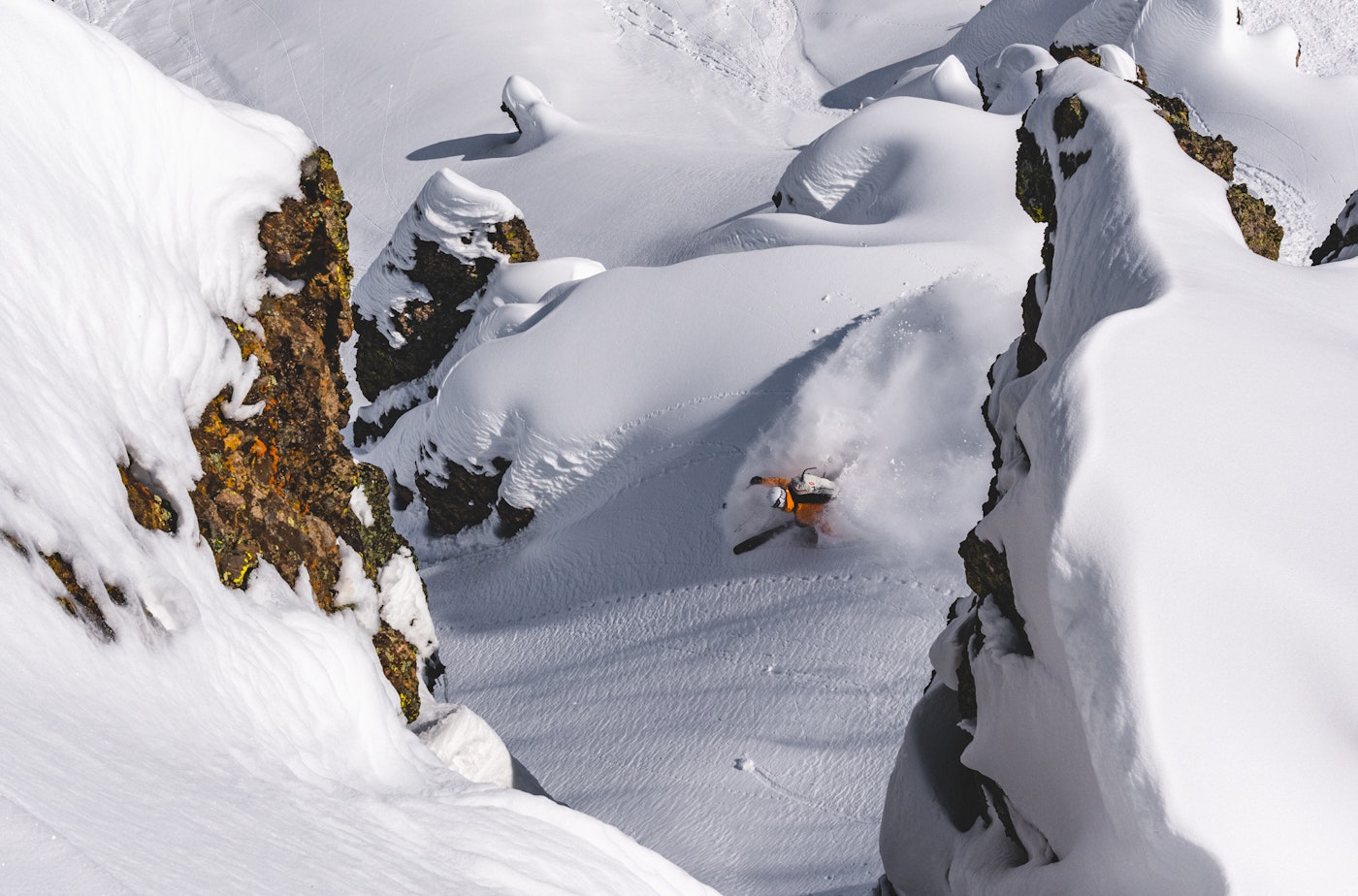
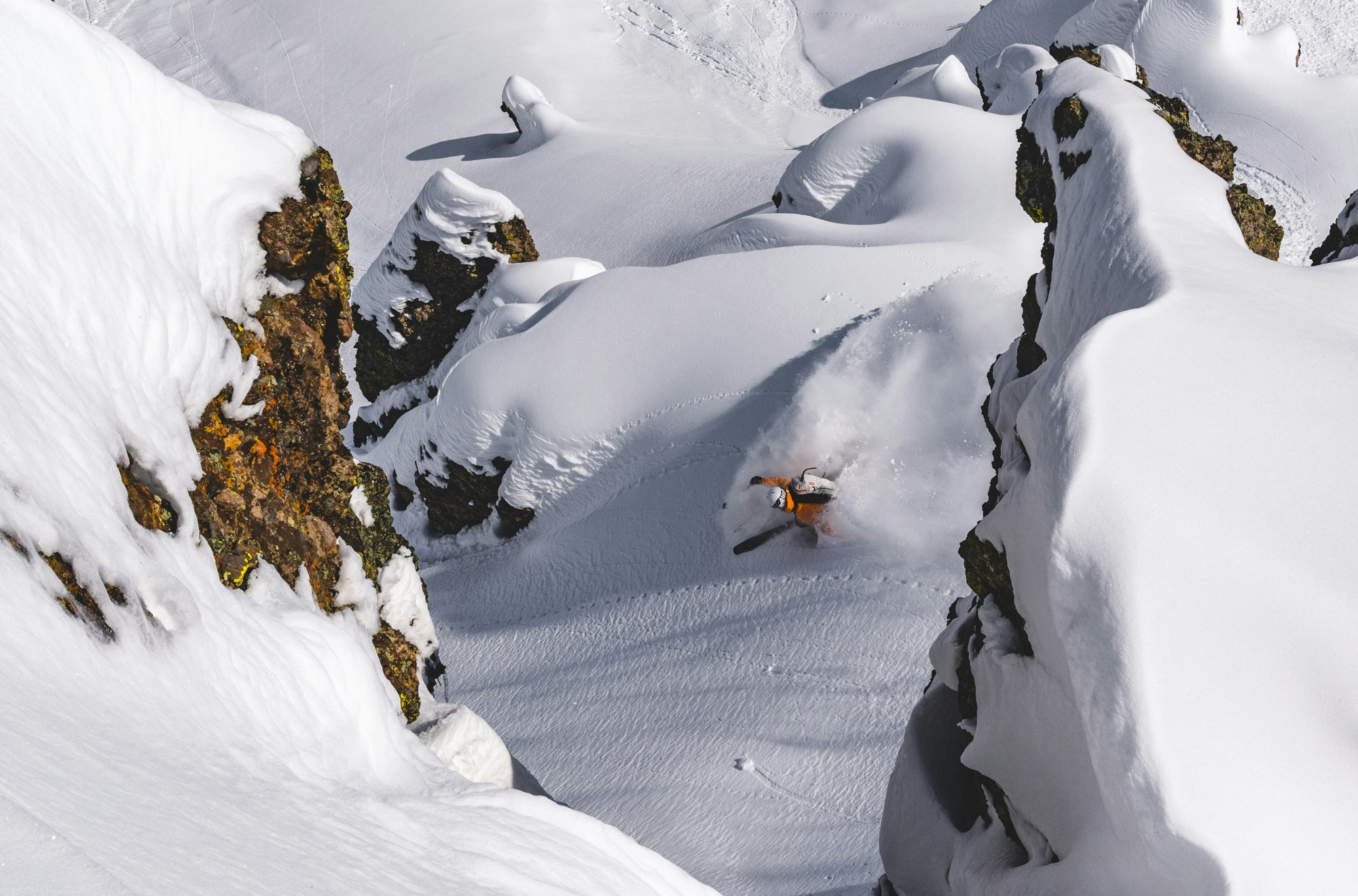
What was the hardest part about making this film?
The ultimate hardest part was that it needed to be said right. We were walking so many fine lines. You can’t make a film that says, “Nothing you do as an individual matters at all,” that’s totally disempowering, but the reality from the experts—climate solutionists, scientists, the community at large—is that systemic changes are what we really need. When we emphasize individual actions, we inhibit action, actually, by blocking that community and putting so much emphasis on judgment and finger-pointing. It was such a fine line to walk, but we got the message across.
You could argue that most outdoor athletes are hypocrites when it comes to climate change and policy due to travel and tools used to get us to remote locations, why is it important to be an imperfect advocate nonetheless?
There is hypocrisy baked into so many different parts of our lives, and the issue of perfection is a huge one—as an athlete for sure, but as an individual as well. Any time I’m focusing on ultimate perfection, it doesn’t work. It doesn’t serve me, and it ends up lending itself to paralysis, not progress. So, this whole problem of a changing climate is an imperfect problem, and the solutions are imperfect. That doesn’t mean we can’t keep showing up, just think about what we do as athletes or recreational skiers—there is no perfect run or perfect ski day, there’s no perfect mission and if we tomahawk down a line or turn around before the summit rarely do we say ‘that’s it, I’m done, I’m never skiing again.’ We go home, we regroup, get back up and go again. That’s what this challenge, the biggest challenge we are facing of our time, requires of us. That grit and tenacity that we bring to the mountains, we need to bring to this fight and conversation.
How do you see professional sports progressing in terms of becoming more climate-neutral?
The way I like to see it, think of it and would like to see more of, is—as an athlete, we are the trendsetters and leaders in our community, our job is to influence our community, and a lot of that influence is looped in with consumerism and selling ski products, we have to acknowledge that, but we can also influence what it means to be a part of this community. What I really, really want to see more of—and hopefully this film can make space for that—are athletes showing that citizenship, active citizenship, is cool. I have my primary election ballot sitting in front of me right now. Being a citizen is taking an hour and a half of my life and really voting in the primaries, not just voting for president. Knowing who my county commissioner is, having an idea of what’s going on in my town council, talking with the brands that I work with and what they’re doing for sustainability. Obviously, we can’t all go to Washington D.C., but we can be active citizens and make it cool.
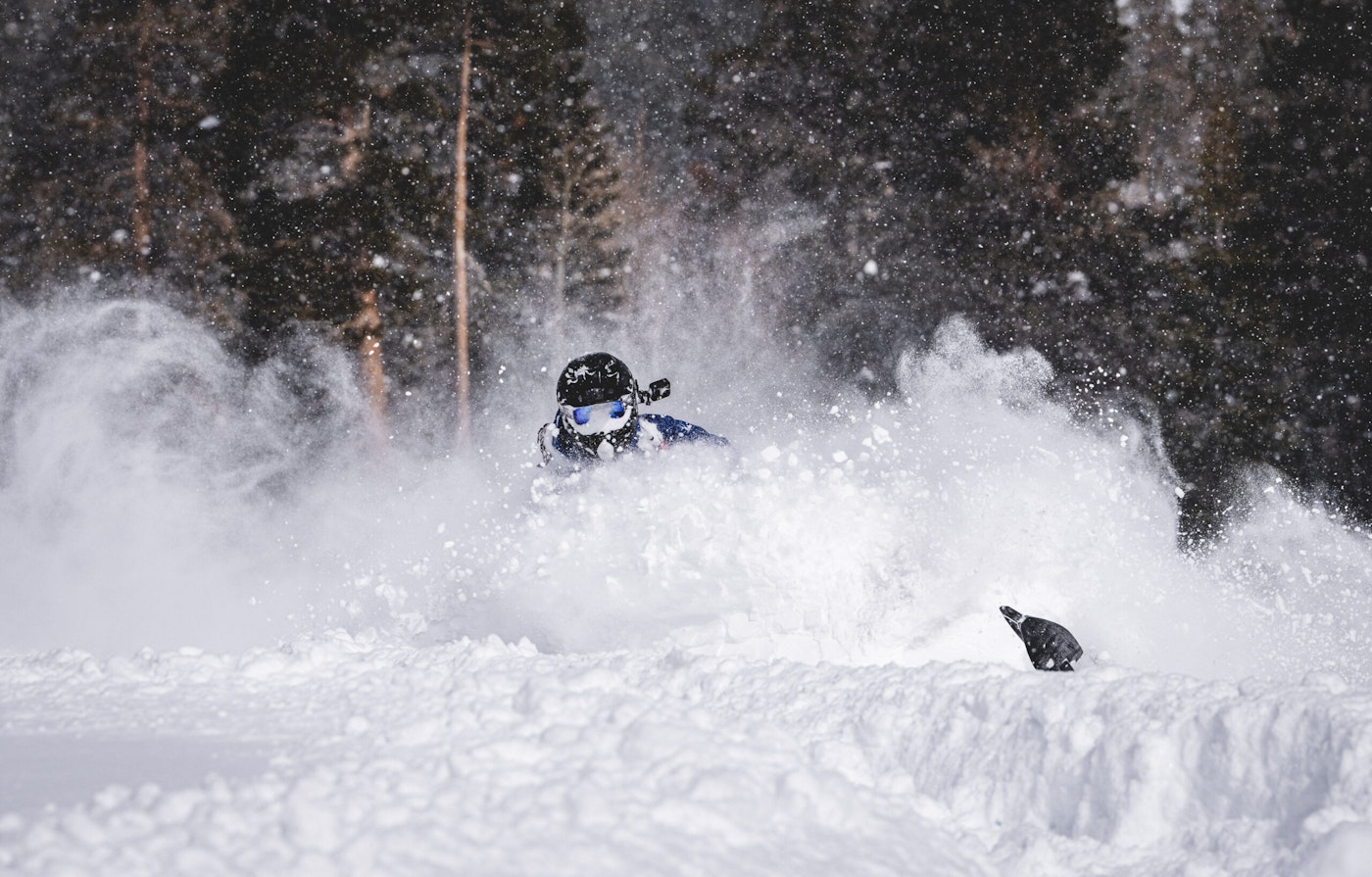
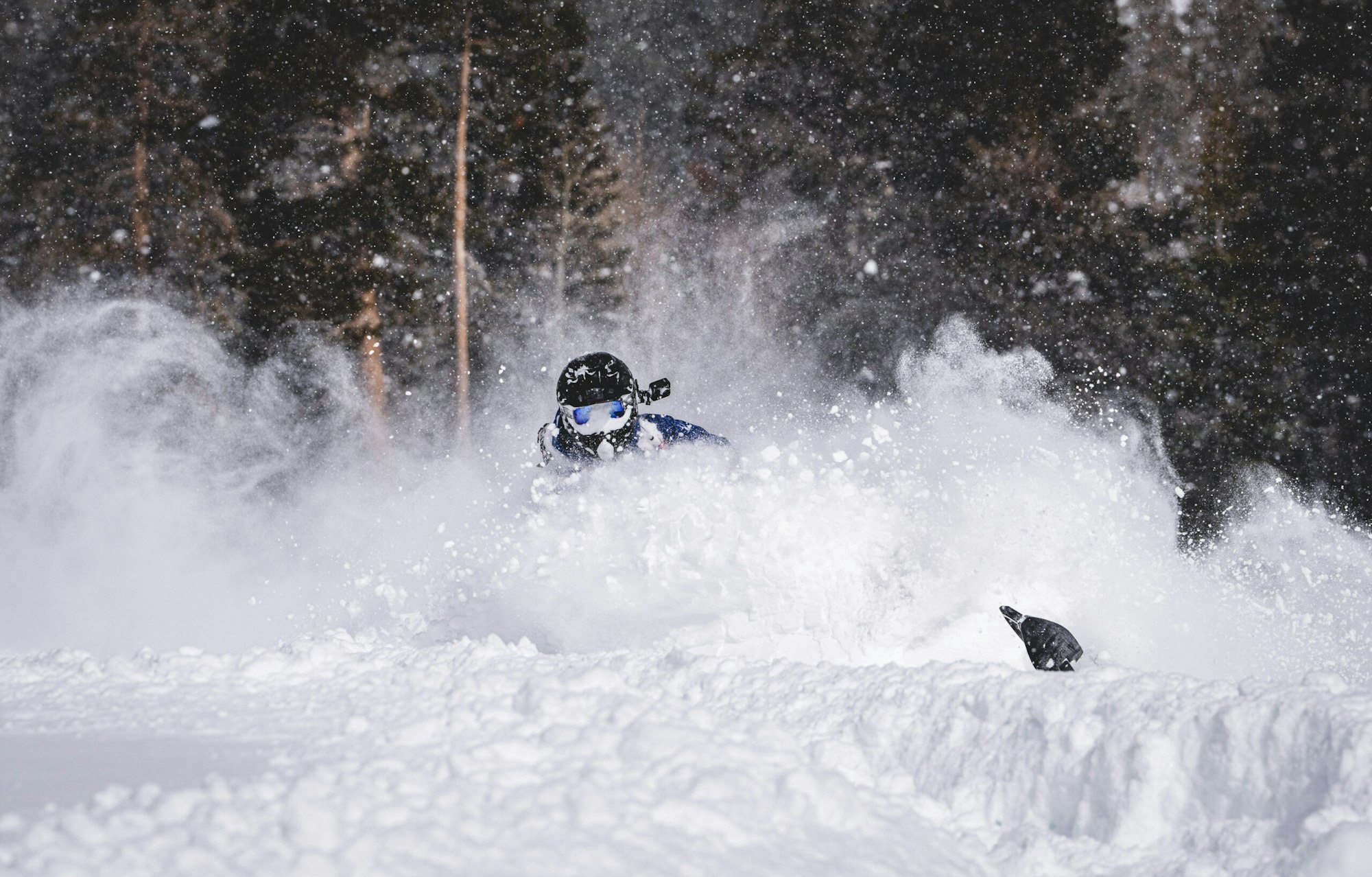
Do you think athletes have a personal responsibility to shift their approach to their respective sport? I.e., romanticize sticking close to home no matter the conditions versus flying across the world to chase storms?
No, I don’t. Because I don’t think that’s where the meat of the difference is. I would rather have an athlete post about voting and going to a town council meeting or, hell, running for a small political office than have an athlete say, ‘I’m never flying to Europe again.’ I think it matters more.
How can more people in the outdoor industry become climate advocates, perfect or imperfect?
Becoming more active citizens and sharing that part of the journey. And obviously, joining POW. There is no perfect organization, but global and U.S. history has shown us over and over again that big changes happen with movements, and right now POW is the movement maker in our industry. They have tremendous resources for people to learn and empower themselves.
How does your new partnership with Norrøna come into play on this climate advocacy topic?
Norrøna is a very aggressively sustainable-oriented company, and when I was working on signing with them, they mentioned staying away from snowmobiles and helicopters. I was very open with them and asked them to watch the film because I think brands shaming athletes for using those tools is just a bandaid on a wound. How are you [the brand] showing up in our political system, where are you donating your dollars? I think Norrøna’s commitment to sustainability and their openness and receptiveness to hearing my perspective is really cool and inspiring. That’s one thing that they admire is that I’m willing to go out on a limb and speak up for what’s right, even if I’m doing it in a way that’s different than what they thought in their minds made sense.
I know you’re trying to remove the word perfect from your vocabulary, but if you could conjure up a perfect ski day, what would it look like?
Against all odds, or what people want me to say, I think I had one of my perfect ski days last Tuesday at Palisades. It snowed three inches, it wasn’t really sunny, no one was really expecting anything and I went out with my dad. I never left KT-22, and I had the best day ever! I don’t know, it was just one of those magical days where three inches of snow and wind made the whole mountain smooth and fast and you could be a total hero. It wasn’t a powder day, it wasn’t sunny, there were no cameras, and honestly, it was the most fun because my home hill is where I fell in love with skiing and had a feeling of comfort. It’s really fun to get out of our comfort zones and push ourselves, but it’s also really fun when you’re feeling really good in that comfort space.
![[Q&A] Amie Engerbretson is "The Hypocrite"](https://www.datocms-assets.com/163516/1751460948-hypocrite_16x9in-a-402x.png?auto=format&bg=FFFFFF&w=100)
![[Q&A] Amie Engerbretson is "The Hypocrite"](https://www.datocms-assets.com/163516/1751460948-hypocrite_16x9in-a-402x.png?auto=format&bg=FFFFFF&w=1200)
![[GIVEAWAY] Win a Legendary Ski Trip with Icelantic's Road to the Rocks](https://www.datocms-assets.com/163516/1765233064-r2r26_freeskier_leaderboard1.jpg?w=200&h=200&fit=crop)
![[GIVEAWAY] Win a Head-to-Toe Ski Setup from IFSA](https://www.datocms-assets.com/163516/1765920344-ifsa.jpg?w=200&h=200&fit=crop)
![[GIVEAWAY] Win a YoColorado X Coors Banquet Prize Package](https://www.datocms-assets.com/163516/1764877349-long-live-local-cooler-bag2.jpeg?w=200&h=200&fit=crop)
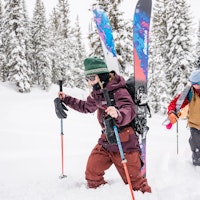
![[GIVEAWAY] Win a Legendary Ski Trip with Icelantic's Road to the Rocks](https://www.datocms-assets.com/163516/1765233064-r2r26_freeskier_leaderboard1.jpg?auto=format&w=400&h=300&fit=crop&crop=faces,entropy)
![[GIVEAWAY] Win a Head-to-Toe Ski Setup from IFSA](https://www.datocms-assets.com/163516/1765920344-ifsa.jpg?auto=format&w=400&h=300&fit=crop&crop=faces,entropy)
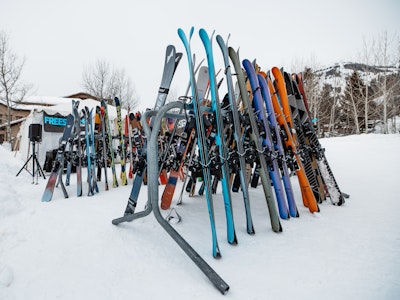
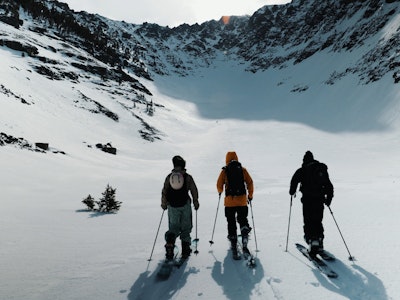
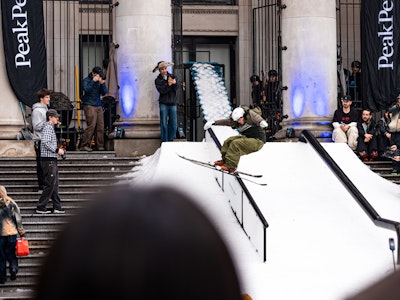
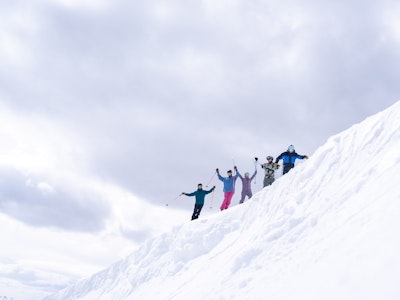
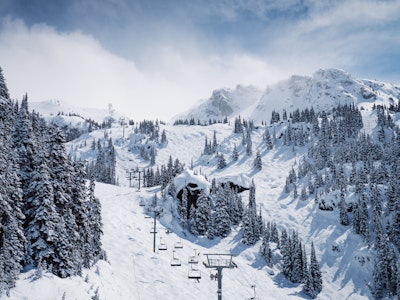
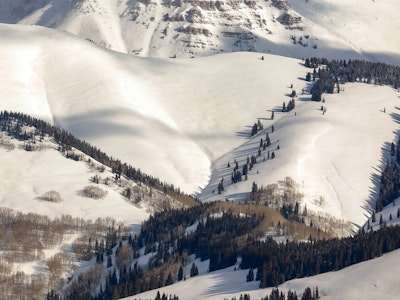
![[Q&A] Amie Engerbretson is "The Hypocrite"](https://www.datocms-assets.com/163516/1751460948-hypocrite_16x9in-a-402x.png?auto=format&bg=FFFFFF&w=2000)